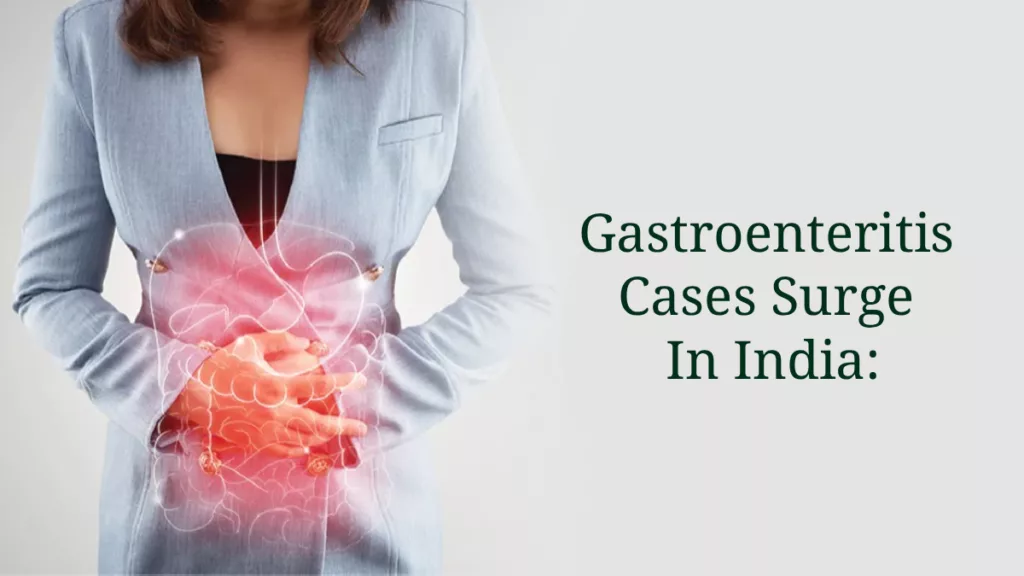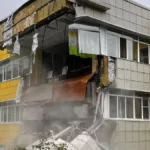India is currently witnessing a significant surge in gastroenteritis cases, particularly during the monsoon season. This rise in infections has been reported across various parts of the country, prompting health advisories and a renewed focus on public hygiene.
What is Gastroenteritis?
Gastroenteritis, often referred to as “stomach flu,” is an inflammation of the stomach and intestines. It is a highly contagious illness characterized by a range of uncomfortable symptoms. While it is often self-limiting in healthy individuals, it can be dangerous for young children, the elderly, and those with compromised immune systems due to the risk of severe dehydration.
Causes of the Surge
The primary cause of the current surge in cases is the contamination of food and water. The monsoon season creates an ideal environment for harmful bacteria, viruses, and parasites to thrive.
- Contaminated Water: Heavy rainfall often leads to the mixing of sewage with public water supply lines. Consuming untreated or unfiltered water is a major risk factor.
- Contaminated Food: Street food, uncovered food, and improperly stored or cooked food are significant sources of infection. Foodborne pathogens like E. coli, Salmonella, and Campylobacter can multiply rapidly in humid conditions.
- Poor Hygiene: Lack of proper handwashing after using the toilet, before eating, and after handling contaminated surfaces is a key reason for person-to-person transmission.
- Viral Culprits: The most common viral causes of gastroenteritis include Norovirus and Rotavirus. These are highly contagious and can spread quickly in crowded places like schools, offices, and hospitals.
Common Symptoms
The symptoms of gastroenteritis can vary in severity but typically include:
- Diarrhea: Watery, loose stools, which can be frequent.
- Nausea and Vomiting: Often the initial symptoms, leading to a loss of fluids and electrolytes.
- Abdominal Pain and Cramping: Discomfort in the stomach area.
- Fever: A low-grade fever may accompany the other symptoms.
- Fatigue: General weakness and a feeling of being unwell.
In severe cases, symptoms of dehydration can appear, such as extreme thirst, dry mouth, reduced urination, and dizziness. These are warning signs that require immediate medical attention.
Prevention and Management
Medical experts and health authorities are emphasizing proactive measures to curb the spread of the disease.
- Maintain Excellent Hygiene:
- Wash your hands frequently and thoroughly with soap and water, especially before preparing or eating food, and after using the restroom.
- Carry an alcohol-based hand sanitizer for situations where soap and water are not available.
- Clean and disinfect frequently touched surfaces in your home.
- Ensure Food and Water Safety:
- Drink only boiled or filtered water.
- Avoid consuming street food, especially raw or uncooked items.
- Ensure all food is properly cooked and stored.
- Wash fruits and vegetables thoroughly before consumption.
- Stay Hydrated:
- The most crucial step in managing gastroenteritis is to replace lost fluids.
- Drink plenty of water and, more importantly, Oral Rehydration Solutions (ORS) to restore the balance of salts and sugars in the body.
- Avoid sugary drinks, caffeine, and alcohol, as they can worsen dehydration.
- Seek Medical Help When Needed:
- While most cases are mild, it is essential to consult a doctor if symptoms are severe, you notice signs of dehydration, or if there is blood in your stool.
- Do not take antibiotics or anti-diarrheal medications without a doctor’s prescription, as they can sometimes worsen the condition.
By adhering to these simple but critical hygiene and safety practices, individuals can significantly reduce their risk of contracting and spreading gastroenteritis.







